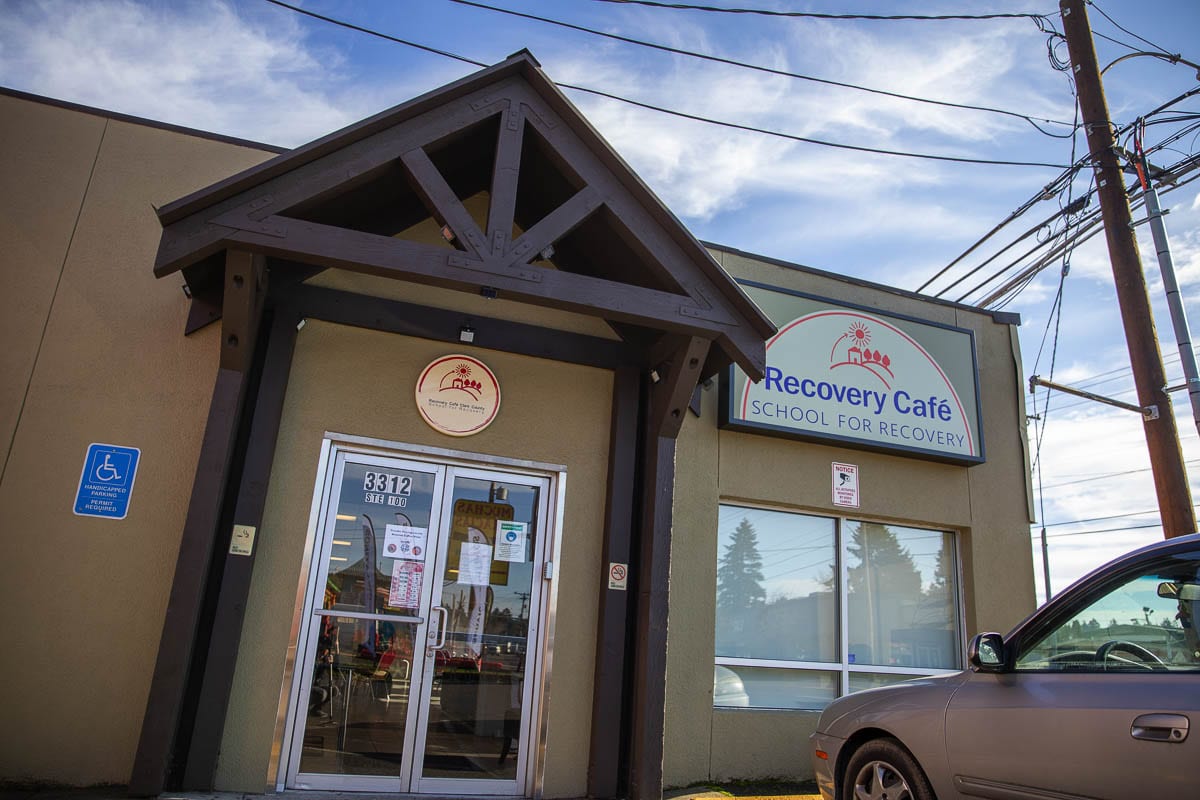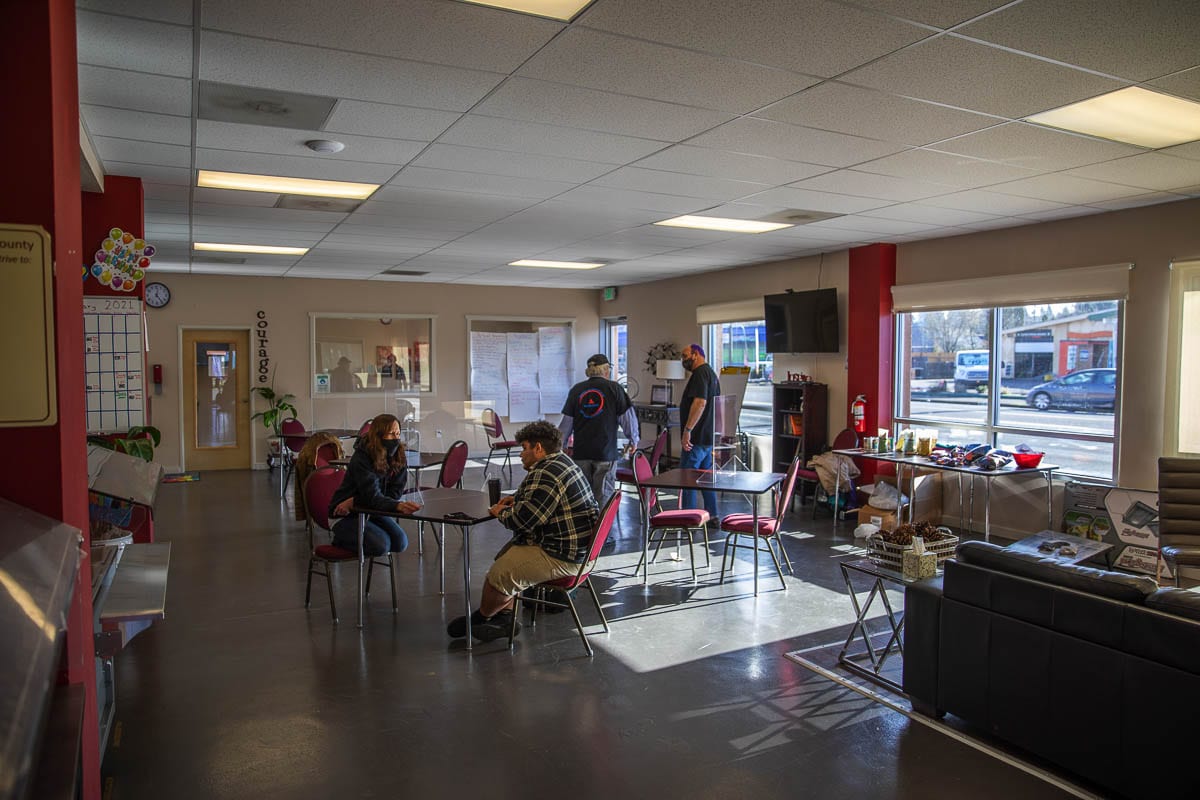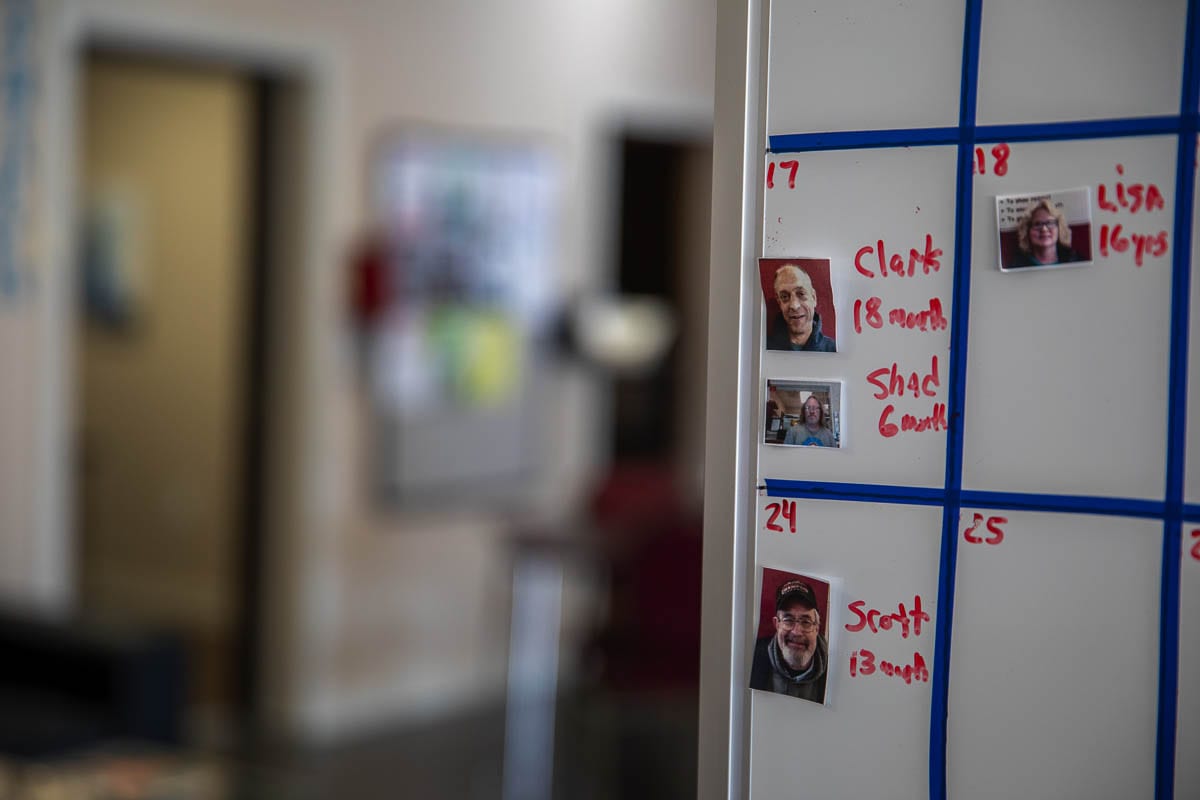Orchards location opened in 2018 and has grown exponentially
VANCOUVER — Addiction in its many forms has caused heartbreak for many people in Clark County, but the Recovery Café may have a solution: community.
The organization was formed in 2018 by a group of community members from diverse backgrounds, and ever since has been helping people into recovery through accountability, family and good food. Along the way, they even give jobs to people that become members.

“We went up to the Seattle café, which that’s where the first cafe started. Before we even left that building, we were like, ‘This is what Vancouver needs, they need a place to where people could come and they feel safe,’” said Becky Gonzales, the operations manager for the café. “It was made to feel like it wasn’t just, you know, a building to come to, but it was a place to come and feel like you’re home and you’re safe.”
Becky and her husband Ethan both work at the café to facilitate the key components of its success. Nearly the entire team at the café are living lives in recovery themselves, and are now sharing the wisdom they learned on their journeys.
The three rules for becoming a member of the café are to be clean and sober for 24 hours as to not trigger any other member in recovery, plugin to community through a recovery circle and to give back to the community through work at the café or elsewhere.
The recovery circles are led by people who themselves have achieved recovery and are not programs as much as they are accountability and support teams. In the beginning, the café only hosted two circles. As of this month, they have 91 actively meeting groups. Each week they come together to encourage and listen to each other.
“I have everything I need to function, and a lot of that is because of the cafe and the closeness and the circles that I’ve attended. And now I’m employed here,” said Mark Schilling who is in recovery and works as a COVID monitor at the café. “This is an amazing place. I see it time and time again, people come in here and they find hope, and help and compassion.”

The serving portion of the café can come in many forms and often takes place within the café community itself. Each day prior to the pandemic, food prepared in the kitchen would be served to members during the day. Right now, they have opted for gratitude bags of food prepared onsite and sent home with members.
The coffee booth at the café remains open and it along with all other resources are free to all members.
“Everything the people have to offer, just heart wise and soul wise, it has everything I was looking for,” said Rori Dicker, who works in the café kitchen. “I’ve been in recovery for almost two years now, and I just recently came here. I want people to understand that this is a place where you can come in recovery from anything and be at home and find resources, find people like minded and feel at home. This is the community’s cafe.”
Through recovery coaches and employment coaches, members can also seek out mentorship and guidance to approach next life steps. These coaches spend time on-on-one with members and explain resources in the area and help them find service and work opportunities.
The café’s strategy is to not merely advocate one single path to recovery, but encourage members to find what helps them be the most successful. This can include pathways like programs such as SMART Recovery, becoming connected with a local church ministry, setting goals, or additional accountability like AA.
“What’s going on here is unity. People from all walks of life, who have different faiths, different paths of recovery, and they’re taking it out there and that’s what the world needs right now,” said Ethan, who works as a recovery coach. “It’s much different than a counselor, a counselor helps you work with trauma from the past. We’re all about the present and the future. So there’s a lot of goal setting and step taking.”

The café continues to operate through the pandemic, with physical distancing, masking and plexiglass dividers at tables. Employment counselors like Steven Mahoney are still hard at work helping people in recovery find job opportunities during COVID-19 as well.
The position is a resource made available through Medicaid, but is still available to anyone. Mahoney said he helps members decide if they want to go to school, get a job or advance in the workplace, but lately has seen many people wanting to become recovery coaches themselves.
“The biggest joy in my life is to see people get it,” Mahoney said. “When that happens, everything I do is worthwhile. I mean, I have been in long term recovery and it would be easy to just say, ‘I got mine, now you go get yours.’ But I get no greater joy in this world than to give it to somebody else.”
For more information on the Recovery Café, visit the website at www.recoverycafecc.org.




